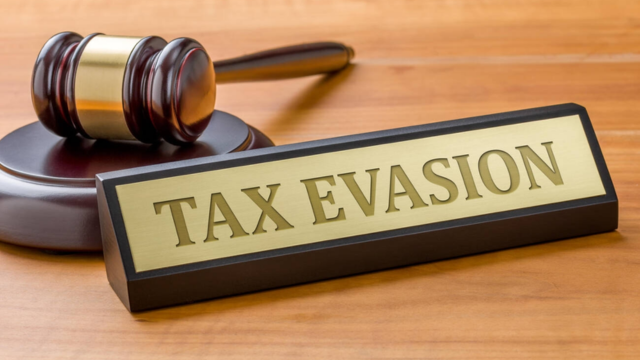Can Police in North Carolina Search Your Phone During a Traffic Stop? You imagine cruising down Interstate 85 between Charlotte and Durham for a weekend getaway in the Blue Ridge Mountains. Suddenly, flashing lights appear in your rearview mirror. Your heart is pounding as you pull over to a spot your friend says is safe. A North Carolina state trooper approaches your car. The routine traffic stop goes along — you show your license and registration and answer questions about your trip. But then, the conversation takes an unexpected turn. The officer asks to see your phone.
This is quite a nerve-wracking situation. Our smartphones these days have become an extension of ourselves. These small devices contain treasure troves of information: texts, emails, photos, social media accounts, and browsing history. The thought of a police officer accessing all that data is unsettling.
So, can North Carolina police search your phone during a traffic stop? The answer, like many legal issues, is nuanced. It depends on the circumstances. This blog post will delve into the legalities surrounding phone searches during traffic stops in North Carolina. We’ll explore your rights as a driver, the exceptions to the warrant requirement, and what to do if an officer asks to see your phone.
Understanding Your Rights: The Fourth Amendment
The foundation of understanding the search of a phone during a traffic stop is the Fourth Amendment to the United States Constitution. This protects individuals from unreasonable searches and seizures by the police. That ensures that police cannot go through your belongings without either a warrant or probable cause.
Probable cause is a very important concept. This means that the officer must have a belief, one based on reason, that evidence of a crime will be found if they search your phone. A hunch or suspicion is not enough; the evidence has to be concrete.
General Rule: Warrant Needed for Mobile Phones Searches
In light of the landmark Supreme Court case Riley v. California (2014), law enforcement in North Carolina generally can’t search the contents of your phone without a warrant at a traffic stop. A warrant is a court order, issued by a judge, that specifically allows the search for certain evidence based on probable cause.
This principle protects the vast amount of personal information stored on smartphones. Our phones are no longer just containers for wallets and keys. They house our digital diaries, filing cabinets, and communication centers. The Fourth Amendment recognizes this reality and protects this digital extension of ourselves.
Exceptions to the Warrant Requirement
There are, however, some exceptions to the warrant requirement for phone searches during traffic stops. Here are the most common ones:
- Consent: If you grant the officer a search of your cellular phone, he or she can do so. Keep in mind that consent is always voluntary. In this matter, though, you can properly refuse a search, as to consent to it is not obligatory based on police request.
- Plain View Doctrine: If the officer can see evidence of a crime on your phone screen as he lawfully stops you, he could seize the phone. For example, if your phone screen is sufficiently illuminated to clearly display an ongoing drug deal or a text message threatening violence, that might give him reason to seize the phone. However, he could not search through the rest of the content of your phone under this doctrine.
- Search Incident to Arrest: In case you are taken into custody for a crime, the officer can search your phone and whatever is in close reach of you for weapons and evidence connected with the arrest. The search is only incident to arrest, and does not empower the officer to begin a full search of the entire phone.
- Exigent Circumstances: In very few cases, when there is a likelihood of immediate harm or loss of evidence, the officer could search your phone without a warrant. This exemption is strictly used and there must be a direct threat for it to allow the search .
What to Do if an Officer Asks to See Your Phone
When a North Carolina police officer asks to see your phone at a traffic stop, you should:
- Be polite but firm. You could say, for example: “I don’t want you to search my phone.”
- Know your rights. If the officer continues to attempt to search your phone, you can tell him you know you have the right to refuse a warrantless search.
- Don’t volunteer information. Do not open your phone or otherwise disclose your passcode to the officer.
- Remain silent. You have a right to remain silent, which means you can be silent about what’s on your phone.
- When you are detained, do not say anything about your phone. You should ask to speak with an attorney before you agree to any searches.
If You Think Your Rights Were Broken
If you believe a police officer searched your phone during a traffic stop without a warrant and without any of the exceptions applying, you may have options to challenge the search. Here is what you can do:
- Contact an Attorney: An experienced criminal defense lawyer can advise you on your legal rights and potential courses of action. They can review the details of your situation and determine if the officer’s actions violated your Fourth Amendment rights.
- Motion to Suppress Evidence: Your attorney can also file a motion to suppress the evidence gathered through illegal search of your cellular phone. This means that what was obtained through such search cannot be used against you in court. If the motion is granted, all such evidence on your phone would not be considered during your trial.
Important Considerations
Don’t forget that the legal environment of cell phone searches is dynamic. There can be new court decisions or changes in technology that impact your rights. Here are some additional suggestions:
- Be Proactive: While understanding your rights is crucial, it is also prudent to take an active stance regarding your privacy. Install strong passcodes and fingerprint- or face-based identification locks for your cell phone.
- Data Encryption: Explore data encryption options for your phone. This may make it very difficult for someone to access the contents of your phone even if they have physical possession.
- Consult an Attorney: If you are concerned about specific situations or misuse of a phone, consulting an attorney who specializes in digital privacy is invaluable for information.
Conclusion
Knowing your rights during a stop on North Carolina highways and byways in regards to searches of your phone is crucial. According to the Fourth Amendment, you have the right to privacy. You also retain the right to decline a warrantless search. However, there are some caveats.
Then, if you are asked to submit for a search by an officer, stay calm, be polite but firm, and refuse to let him search your phone. The knowledge of rights and how to assert those rights can be your best defense. Remember, once you feel the violation of your rights has occurred, you must meet with a lawyer to determine the possibility of how you may have some recourse to challenge that search.
So, by being knowledgeable about the rights related to phone searches you could enter into traffic stops with confidence and adequately protect your digital rights.


 by
by 




